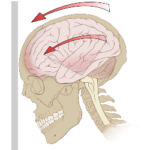
Healthy Sleep Habits
If you have ever suffered from insomnia or interrupted sleep patterns you know how powerful it’s effects are on your day-to-day health. Long-term health depends on healthy sleep. Sleep is a time when your body regenerates itself. Most notably, it does this through growth-hormone that is secreted while you sleep. Growth hormone stimulates tissue healing, liver detox pathways, lean muscle repair/ building, fat store breakdown, and blood glucose normalization. Symptoms of inadequate sleep may include; fatigue, decreased concentration, drowsiness, impaired mood, inability to cope with stress, and lowered immune system. Below I’ve listed some healthy sleep habits, however, these recommendations are not intended to replace professional assessment. Please contact your healthcare provider if you or your loved one is experiencing sleep problems.
7 TIPS ON IMPROVING SLEEP QUALITY
- Be consistent with your sleep and wake cycle. An inconsistent schedule is stressful for your adrenal glands and can even signal the release of adrenaline. If you do not already have a routine for getting ready to go to bed, create one. Having a ritual that tells your brain it’s time to wind down and prepare for sleep is essential.
- Give yourself a reason to be tired at the end of the day. This means avoiding “naps” throughout the day and doing some kind of activity that creates the need for recuperation. If you sit at a desk during the day and on the couch at night, there will be little need for you to feel tired.
- Ask yourself; “what is the bedroom used for”? If you answered anything other than sleeping and sex, you may be loosing sleep due to associating it with activities such as; watching TV, reading, or ruminating over the days events. If the bedroom isn’t being associated with being tired, then you’re not going to be tired when your in there.
- If you’re lying awake more than 15 minutes ruminating on things that happened during the day or events to come, get out of bed. Doing this every night can create an association with rumination and bedtime. Do something mundane, like reading your refrigerator manual instead, this should put anyone to sleep.
- Have the right environment for sleep, think about caves. Your bedroom should be dark, cool, and quiet. Remove or reduce ambient light from devices such as; alarm clocks, stereos, TV’s, and computers. The hormone melatonin is secreted when there is dark.
- If you don’t have any trouble falling asleep, but notice yourself waking up in the middle of the night it could be due to low blood sugar. Try having a small protein snack right before bed, such as a handful of nuts/ seeds, or cottage cheese.
- Avoid stimulants; such as caffeine (present in tea, coffee, and chocolate), nicotine, energy supplements, and weight loss products. Please consider that caffeine’s stimulating effects can last up to 10 hours for some people.


